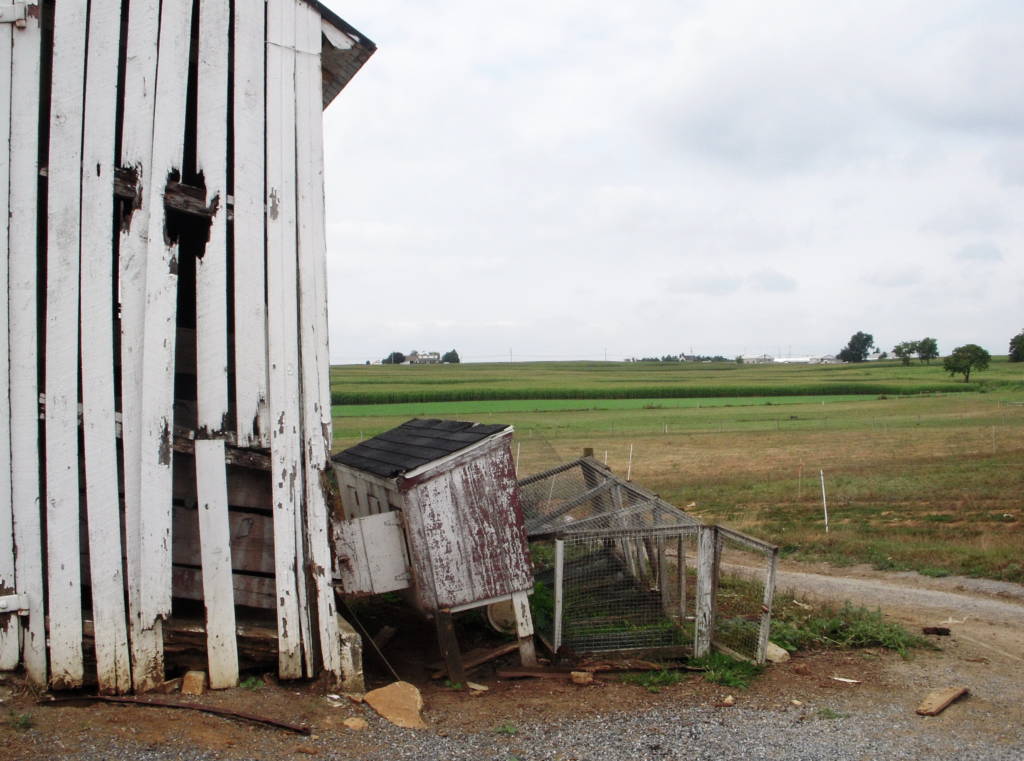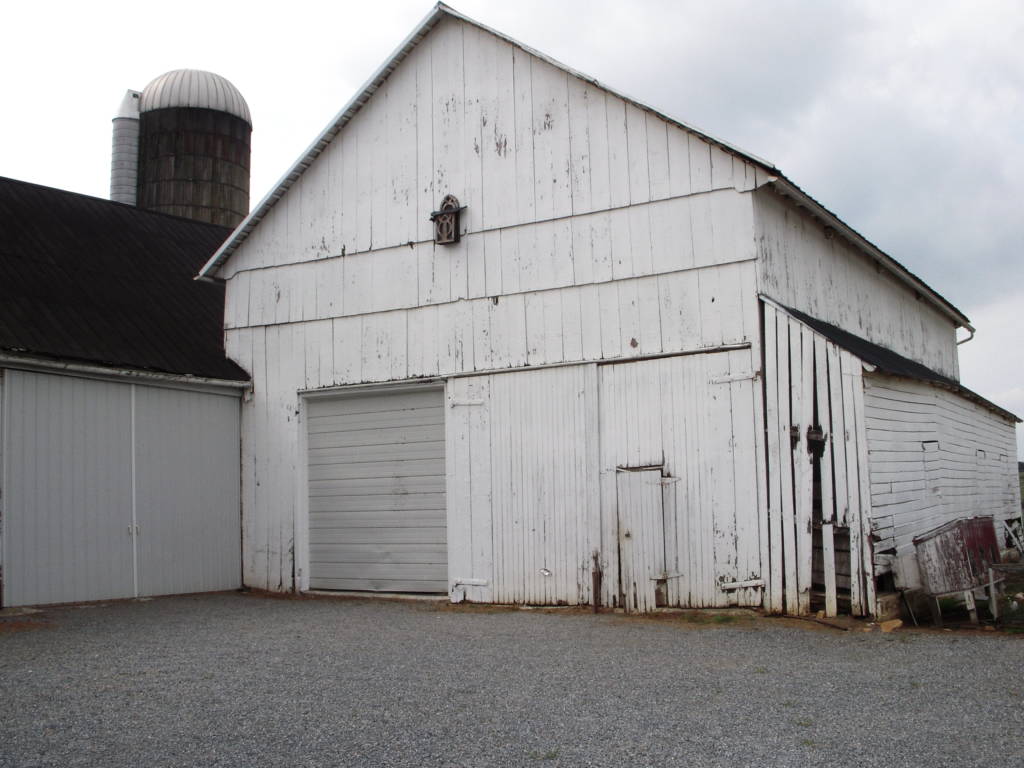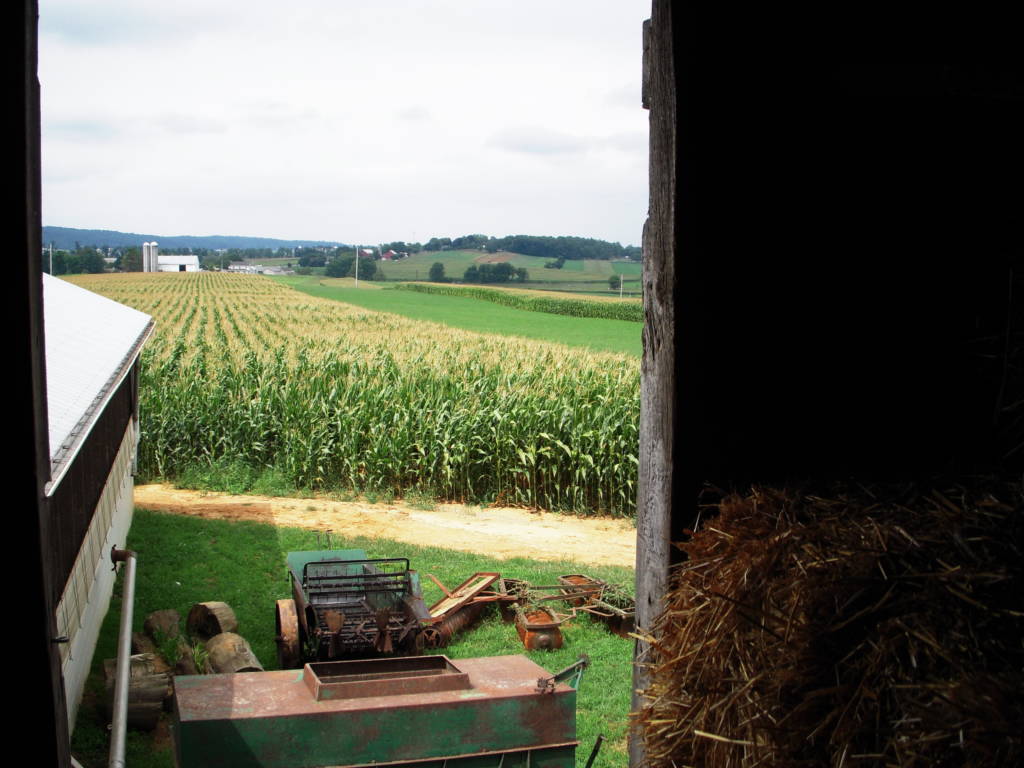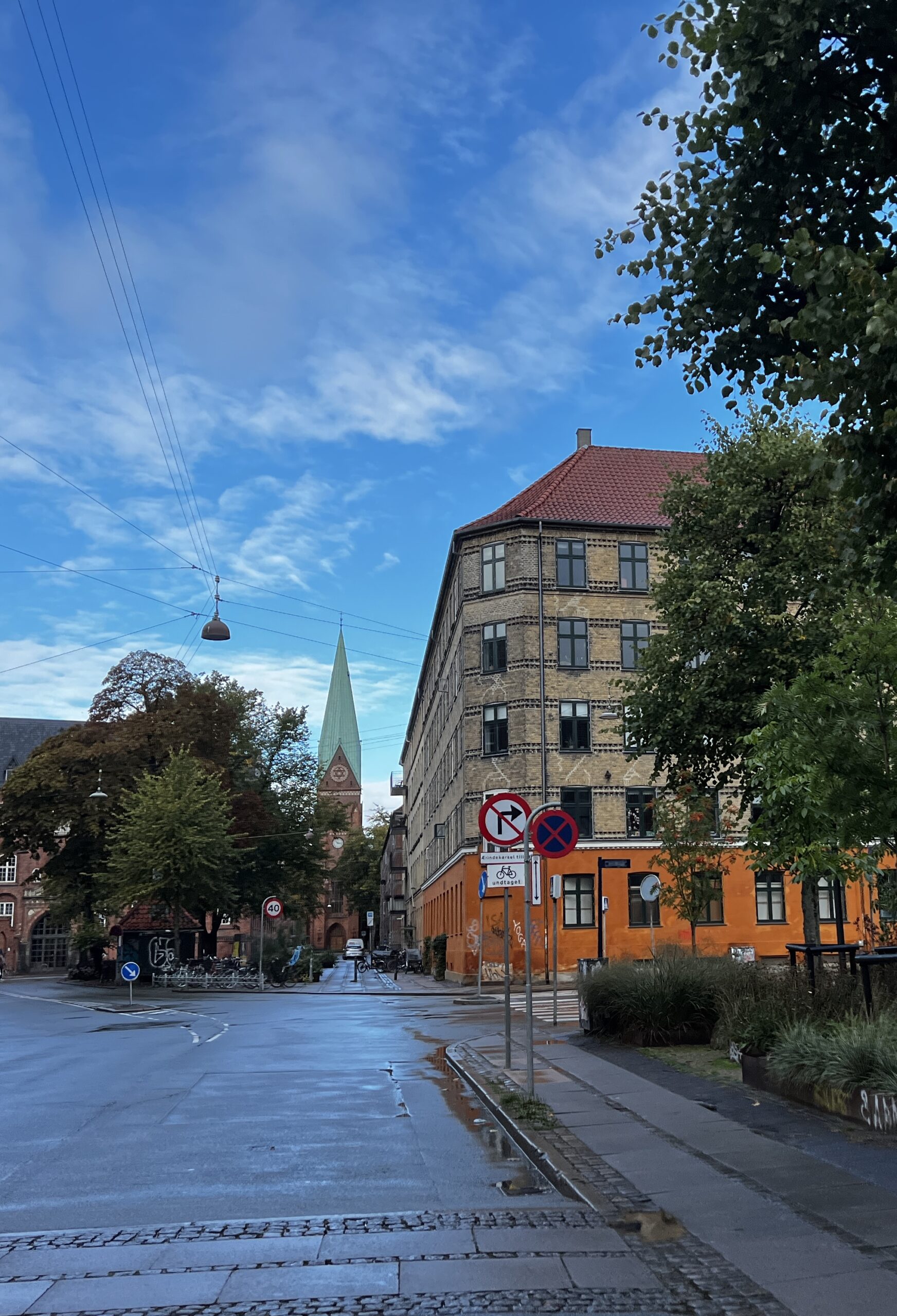
Lancaster County, Pennsylvania
When I return to the landscape of my growing up years, making the five hour drive from my home in the foothills of the Blue Ridge Mountains in Virginia to the gentle farmland of Lancaster County, Pennsylvania, I drive by the farm where I grew up without stopping. I do not turn in the lane once shaded by a canopy of catalpa trees or pass by the rock garden where the “Slow Children at Play” sign my older sister painted so many decades ago once stood among the hostas. It could as easily have said “Slow, Children at Work.”
From the road I can see the wash house between the house and barn. Its chipped and peeling brown shingles matched those on the sprawling farmhouse nearby. In the wash house we boiled lye soap in the big iron kettle, taking turns stirring, careful not to splash. When the soap was finished, my mother grabbed the iron ladle from the hook and dipped the hot liquid into the soap pans to harden. When we butchered, the air in the wash house was filled with smoke and the smell of rendered lard.
The farmhouse where twelve of us grew up is now gone, burned to the ground in a Christmas Eve fire a few years after the new owners moved in. The cookstove, my mother told me, overheated as the Amish farmer’s wife was roasting turkeys. In three days they cleared the rubble, and friends and neighbors helped them build a new house. It looks fresh and compact compared to the worn and weathered house that once stood there.

How could the kitchen be gone, the space that held so much? The long table, all those meals together, homework in the evening, and, on Sunday, board games. The smell of pies and cakes baking on Saturday, the stifling heat of summer canning, the sound of lids popping as jars sealed one by one, and my mother quietly singing familiar Mennonite hymns as she went about her endless tasks. The kitchen, the hub of it all.
The bedroom I shared with my younger sister, the room overlooking the garden, is gone. Also, of course, the sweet potato barrel that once stood in the corner, because our room stayed cold in winter. We kept warm through the night under heavy comforters with toasty corn bags by our feet. My mother heated them in the oven of the cookstove each evening. In the new house, with tight windows that may not rattle in the wind, the corner bedroom may be too warm for storing sweet potatoes. The Amish children may not need corn bags.
The big front bedroom, my parents’ room, is gone. Eleven of us born there, only my oldest sister born in a hospital. The family doctor was called out in the night, early morning, evening. For me it was early morning, just after my father went out to do the milking. Thousands of prayers were silently prayed as my parents knelt beside the sagging bed. The room, my parents, all ashes now. I do not know what happened to the prayers.

And the egg room in the basement, where my sister and I spent hours cleaning and grading eggs, did the house come crashing in on it as it burned? Did it tear off the drain pipe where I taped poems and vocabulary words, lists of state capitals, to memorize as I washed the eggs? Did the Amish farmer’s wife, like my mother, use the shelves along the wall to store canned goods? Were the jars knocked off the shelves and broken, pickles and beets floating in the applesauce, strawberry jam oozing into chow chow?
One time I did drive up the lane and noticed the changes the new owners had made. Beyond the new house, beyond the wash house, the corn crib had been turned into a stable for mules; the stripping room next to the cow stable was now used for storing harnesses. Before I was born, my father, uncles, and brothers stripped tobacco there, pulling it down from the scaffolding in the barn lathe by lathe, stripping off the leaves to bale and sell. All of that was before economic and ethical realities influenced them to no longer grow tobacco. When I was a child, we used the room, still smelling faintly of tobacco, to sort and bag potatoes. Now it may smell instead of harness leather.
In the front yard three evergreens grow side by side where the weeping willow once stood. It came down in Hurricane Hazel in the fifties and was sawed up and carried away. After that, my mother couldn’t make willow whistles anymore. I thought she might have saved some branches, the straight ones with the buds far apart, kept them moist, but there was too much work to do. I could never make a sound with those willow whistles, and my mother said, “when you’re older, you’ll be able to blow harder,” but by then the tree was gone.
What remains is memory.
Mary Alice Hostetter’s writing has appeared in the New York Times (Modern Love Essay), Gettysburg Review, Prime Number, Appalachian Heritage, and storySouth, among others. One of her pieces was recently nominated for a Pushcart Prize. This brief essay is excerpted from her yet-to-be-published memoir, Pulling Up Roots: A Mennonite Girlhood Remembered. She lives with her wife in Charlottesville, Virginia. Further information at www.maryalicehostetter.com.




